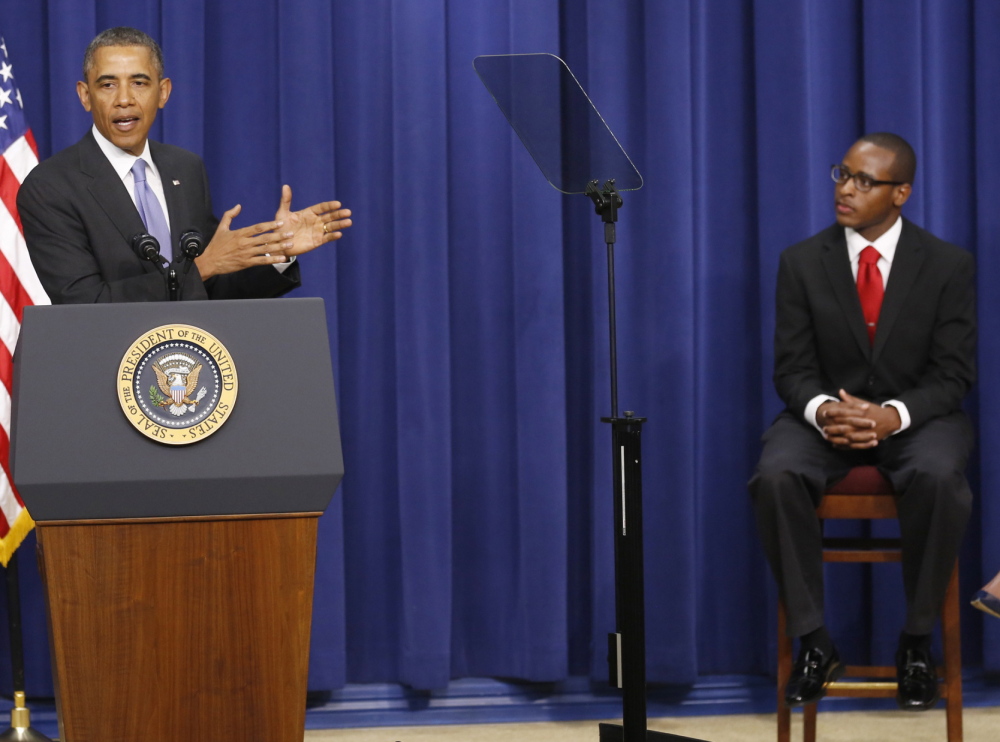WASHINGTON — Income inequality is out, “ladders of opportunity” is in.
Eager to dispel claims that President Obama is engaging in “class warfare” as he heads into his State of the Union address next week, the White House is de-emphasizing phrases focusing on economic disparity and turning instead to messages about creating paths of opportunity for the poor and middle class.
The adjustment reflects an awareness that Obama’s earlier language put him at risk of being perceived as divisive and exposed him to criticism that his rhetoric was exploiting the gap between haves and have-nots.
On Dec. 4 Obama delivered a sweeping economic address where he declared that “increasing inequality is most pronounced in our country, and it challenges the very essence of who we are as a people.” He used the word “inequality” 26 times in his speech that day.
A month later the word has all but disappeared at the White House. In his most recent remarks about his economic agenda, the president made no mention of chasms between rich and poor. Rather, he stressed policies that help move low income people into the middle class.
‘LADDERS OF OPPORTUNITY’
“We have to make sure that there are new ladders of opportunity into the middle class, and that those ladders – the rungs on those ladders are solid and accessible for more people,” Obama said last week, expanding a metaphor from his 2013 State of the Union address.
The modification in language does not represent a shift from Obama’s underlying economic message, which White House officials note has been a consistent and prominent theme of his political life.
One senior White House official said the December speech and its attention to economic inequality was designed to highlight one symptom associated with shrinking opportunities for the middle class. But the official, who asked for anonymity to discuss the strategy behind the economic message, said the president’s overarching message has been his desire to reverse that trend and expand opportunities.
“What you want to do is focus on the aspirational side of this, lifting people up, not on just complaining about a lack of fairness or inequality,” said Paul Begala, a former top adviser to President Bill Clinton who consults with White House officials. “Watch the State of the Union, I’d be surprised if he uses phrases like inequality, which suggests a leveling down. If you talk about the middle class, it suggests a lifting up.”
Obama’s December speech was well received by Democrats and liberals, but conservatives jumped on it, arguing that Obama was laying a foundation for economic redistribution.
‘PLAYING WITH DYNAMITE’
“I think the administration is playing with dynamite,” Karl Rove, the former adviser to President George W. Bush, said earlier this month on Fox News. “The more this becomes a question of taking from those who have to those that don’t have, the more they engage the American people in a very negative way for the administration.”
A new poll by the Pew Research Center and USA Today illustrates Obama’s message challenge. The poll found that nearly two out of three surveyed believe that the gap between the rich and everyone else has grown in the last 10 years, a view held by majorities across political party lines. But the poll found that Democrats and Republicans disagreed sharply on whether the government should intervene to close the gap. Among Democrats 90 percent said government should act whereas only 45 percent of Republicans said the same thing.
There is more agreement on whether the government should act to reduce poverty, with more than nine out of 10 Democrats, more than eight out of 10 independents and nearly two-thirds of Republicans saying government should do something to help people out of poverty.
“Anytime a Democrat mentions inequality, suddenly they’re a raging populist,” said Jon Favreau, Obama’s top speech writer until he left the White House a year ago. “What’s he’s talking about he’s been talking about since 2004, 2005.”
Send questions/comments to the editors.



Comments are no longer available on this story